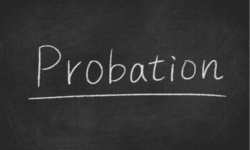If you're self-employed and working with children, vulnerable adults, or handling sensitive information, you may be asked to provide a DBS (Disclosure and Barring Service) check. While employees typically receive these checks through their employer, self-employed individuals must take a different route. DBS checks are essential for building trust with clients and securing certain types of work—especially in education, healthcare, transport, and consultancy roles.
Which DBS Check Can You Apply for as Self-Employed?
Self-employed individuals can only apply for a Basic DBS check on their own. This check reveals any unspent convictions and is suitable for general screening purposes. You can apply for this directly through a registered DBS provider like CRB Direct.
However, Standard and Enhanced DBS checks—which disclose more detailed information such as spent convictions and entries on the barred lists—cannot be applied for by a self-employed person alone. These must be requested by an authorised third party such as a client, contracting organisation, or umbrella body. This ensures that the role qualifies legally for a higher-level check.
How to Apply for a Basic DBS Check
Applying for a Basic DBS check as a self-employed individual is straightforward. Here are the steps:
-
Choose a Registered Provider – Start by selecting a DBS-registered organisation like CRB Direct.
-
Complete the Online Form – You’ll need to fill out your personal details including your full name, address history for the past five years, and details about your role.
-
Submit Identification Documents – Provide valid ID, such as a passport or driving licence, along with proof of your current address.
-
Payment and Processing – Pay the application fee and wait for the DBS to process your request. Basic checks typically take a few working days.
-
Receive Your Certificate – The certificate will be posted to your home address and can be used to show prospective clients or organisations.
What If You Need a Standard or Enhanced DBS Check?
If your work legally requires a Standard or Enhanced DBS check (for example, if you tutor children or provide care services), you cannot request it yourself. You’ll need to:
-
Work through an agency or contracting organisation that can sponsor the check on your behalf.
-
Use an umbrella body—a third-party organisation registered with DBS—to apply for the check if you're contracted to a business requiring it.
Final Thoughts
Being self-employed doesn't exempt you from safeguarding standards, especially when working in sensitive or regulated fields. While you can only apply for a Basic DBS check independently, there are routes to obtain Standard or Enhanced checks through trusted third parties. If you're self-employed and need a DBS check, CRB Direct can guide you through the process and help you stay compliant with UK regulations.







